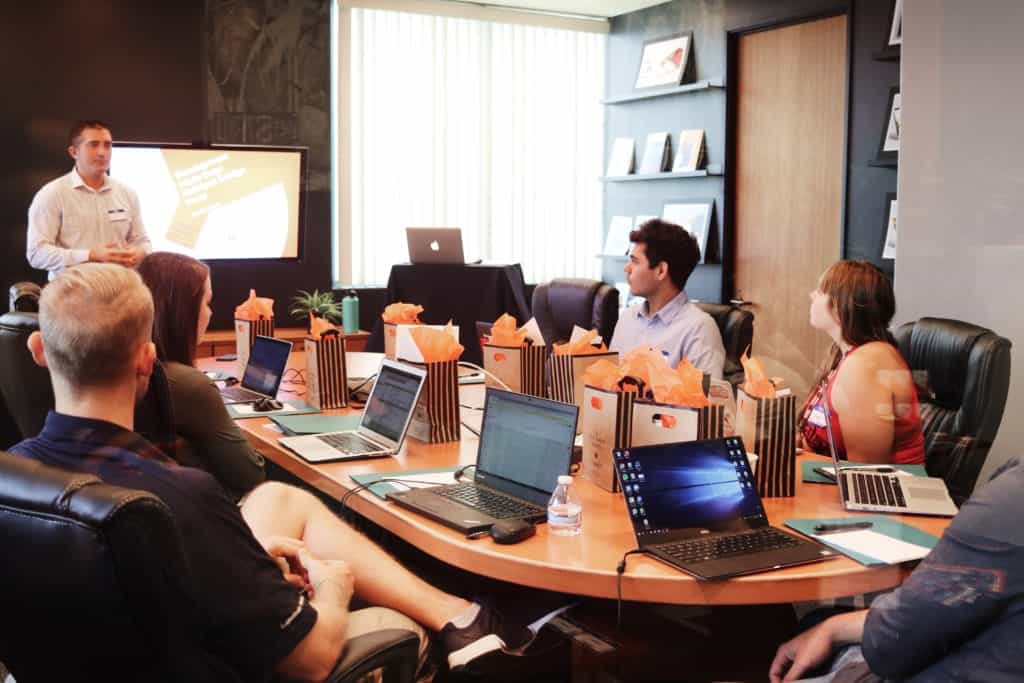
How to avoid kissing frogs during the hiring process?
Startups always start out with an extremely small team. Usually, the team consists of the founder of the startup and a few others that were likely part of the foundation of the startup.
As the company begins to grow, the next step is to hire outside individuals.
This is an extremely difficult decision that could be expensive if it is made incorrectly. Onboarding is expensive because of the required training, equipment, and additional salary.
With all the effort and team building that bringing on a new team member requires, you should be very sure that you are bringing on the right person.
Studies suggest that about 60% of startups fail to take off due to poorly constituted teams. More than half of startups struggle with onboarding new employees successfully.
Not only is this a waste of time, but it is a huge waste of money! Linkedin reports that the cost of pointless hire clocks in around $25,000 to $50,000. The decision to build your team and expand should not be taken lightly, no matter how small of a position you may think it is.
We reached out to some startup and small business founders to see what they had to say about the hiring process and what they looked for in their first hires.
Why do so many new hires fail?
According to a study done by LeadershipIQ study, only 11% of the new hires that failed in the first 18 months failed because of deficiencies in technical skills.
Believe it or not, most new hires failed due to a lack of motivation, an unwillingness to be coached, or problems with temperament and emotional intelligence. (here an article about how entrepreneurs can stay motivated.)
The main reason that a new hire fails, has nothing to do with their capabilities but more about who they are as a person, rather than who they are as an employee.

For all of these reasons and more, it is extremely important to carefully choose your first hires when expanding your startup. If you do not, then you are not only wasting time and money but you are setting a bad precedent and creating a weak foundation for your growing startup.
To do this, you have to have a strong hiring team. Ycombinator found that a surprising reason that many startups fail is because of cofounder blowups.
Cofounder relationships are the most important to a startup, especially when the team is small and looking to expand.
If founders are on different pages with what they want for the company, then it is going to be very hard to successfully move forward.
Julian Cook, Co-founder, and CEO of Howamigoing, a platform that helps People Leaders enhance their feedback culture, gave us a few insights into her first hire as a founder.
She told us that as a startup founder, you are still figuring out your market and process, very emotionally invested in the company, desperate for help but limited in your funding.
When making an objective hiring decision, Cook advised us that you should choose someone that has either worked with you in the past or with someone you know. This way, you are more familiar with their work ethic than if you hired a friend or a stranger.
Between founders, it is important to clearly and firmly establish the vision each member of the team has for the startup, so it will be clear who is going to be a cultural fit with the team.
This is an extremely important step and cannot be skipped. It must be done before the hiring process even begins.

Travis Killian, Owner and CEO of Everlasting Comfort shared his thoughts about the importance of his first startup with us:
Your first startup hire can literally be the entire basis for your productivity levels until you fill out your workforce. When searching for this ever-important Number Two, be sure to look for someone who can, as the reference goes, wear many hats.
As you begin your startup, you may not have the budget that you will have down the road, so it is important to look for team members who can really diversify the services that you can offer your clients. Plus, particular personality traits are also a must.
In other words, look for new hires who have entrepreneurial mindsets.
Try to spot disruptors, innovators and those with creative minds. Since you’ll have your hands full, team members who can function independently will be your best bet.
What is the most important thing for hiring someone into your startup team?
When you are hiring the first people to expand your team as a startup, it is important to choose people who will fit into your company in the long run. Julia Enthoven, founder and CEO of Kapwing, a tech startup in San Francisco, responded to our question with some insights from her hiring process.
We looked for people who were extremely independent in the sense that they didn’t need to be told what to do.
They needed the technical skills to set up their own environments and research new technologies rather than getting fully fleshed-out specs.
We also looked for entrepreneurial folks who were positive and practiced because those qualities are important for enduring the ups and downs of an early-stage startup. Finally, we found people that we liked as you end up spending a lot of time with your early hires.

The most important part of hiring your first employee as a startup is making sure that they are ready to wear many hats and act in any way that will help the company.
This often is not a role that will fit in one job description, so this hire should be diverse and creative, ready to help out besides their traditional role.
Chris Out, Growth Hacking Expert, told us that when he was first hiring for his startup, he looked for people who showed a track record of proactiveness and were comfortable with a lot of uncertainty.
Startups are messy, and you need people that can direct themselves and figure out what needs to be done.
How to hire effectively for startups
Hiring the perfect candidate can be more difficult than any hiring team anticipates. You not only need to carefully vet the candidates that come to you through a screening and interview process, but you also need to attract candidates that will be qualified for the job.
When doing this, it is important to look away from traditional sites like LinkedIn and to sites that cater more towards the startup industry.
In an article, Techstars writes that a great resource to always check is online communities like Github and Stack Overflow, where you can monitor candidate’s portfolios and see discussions of the best, perhaps hidden talent.

One founder who responded to our questions, Luke Smith, founder of We Buy Property in Kentucky, opened up about their experience looking for a new team member. He turned away from traditional hiring avenues and instead used a freelancing site.
When I hired our first employee I did interviews, and I found the individual through Fiverr.com. This was great because we started off a part-time role that really allowed the individual to grasp what needed to be done and it was a low cost for the business.
Hiring is a tough process as you sometimes have to kiss frogs along the way, but it is worth it if the employees can remove busywork that allows the founder to concentrate their efforts on more important tasks.
This was great for both Smith’s company and for the hiree because it allowed both of them to have a sort of preview of what the position was going to be.
This ensured that the new employee wanted to be there and allowed the business to have a test run before they fully onboarded the individual.
Additionally, you can explore Slack developer communities to find who is helping developers solve problems, either on professional or pet-projects and see who is the most helpful out there.
Reaching out to colleagues is also a great way to find a suitable employee. Julia Enthoven, founder, and CEO of Kapwing told us about how she finds new hires for her team.
“We’ve found that there are two effective channels for hiring: referrals and content marketing. To get more referrals, I regularly reach out to friends, investors, and former colleagues to network and ask for referrals.
12/28 of the FTE (Full-Time Employees) we’ve hired at Kapwing came through referrals (5/12 were referrals from external friends, 7/12 from a current employee). Josh, our first hire, was referred to Kapwing through a close friend and former colleague.
Content Marketing (blog posts, podcasts, etc) led us to hire 3/28 people directly but indirectly helped us close many of our candidates. Content is a good way to build hype and reach new people who may be interested in startup jobs.”
Milosz Krasinski, Managing Director at Chillifruit, a web consulting company, found their first hire through networking. Even with no original experience, Krasinski made it his mission to grow his network and make connections, which is how he eventually found his first hire.
Through conversations with acquaintances and recommendations, he found his dream hire who is still with his team today.

Jeff Dundas, the founder of Talk Central, agrees with the importance of referrals, however, that is not always possible for companies, especially when they are new to the market.
One of the best ways to find talent is by asking current employees for referrals, however as a startup hiring our first employee, we didn’t have that luxury. An alternative we utilized was collecting a large number of resumes by creating job postings that attracted relevant workers who were qualified and matched our business’s requirements.
Rather than spending countless hours reading through every resume, we used resume keyword scanning software to search the resumes for specific keywords to identify the prospects that were the best fit for our company.
Once we successfully identified the prospects that were the most qualified, we conducted productive interviews that positioned the interviewees to open up and expand upon their careers, talents, and workplace ethics.
What is the process of hiring people for a startup?
When you are hiring someone for your startup, you must be transparent about what it is you are looking for and how they would fit into the company.
Since early hires are so important to the outlook of the company, they should be crystal clear on what they are getting themselves into.

One important part of this, is making sure you are clear about how much and how the candidate will get paid. Whether or not they are remote positions or in person, it is important to make this aspect of employment very clear.
The key to making sure your hiree is not going to be a waste of time and money, it is important to give talent a reason to stick along for the long haul. When hiring a new employee, you should make it clear that you are looking to create a long lasting relationship by building trust and a strong team. Making candidates feel as though they will be a valuable part of their team is a great way to get them to sign on to your team and give it their all.
David Waring, CEO and co-founder of FitSmallBusiness walked us through his team’s hiring process.
We used and still use to this day a very structured hiring process. It starts with thinking deeply about what the 3 most important things are that we are looking for in a hire and then crafting a job description that focuses heavily on those three areas.
Then we make sure that we are getting our job posting out to as many diverse sets of job boards as possible. We have a survey that we require everyone to fill out who applies, which weeds out those that are not truly interested and gives us a good sense of the person’s writing ability.
Based on those surveys we choose the people that we would like to have a phone interview with. The last two steps are an in-person/video interview and a test project which we pay for in order to get a sense of what it will be like to work with the person.

No matter what your startup’s hiring process looks like or how you find your first hires, it is important to find someone who can fit the vision of the startup in the long term and is willing to help out wherever needed, not just when it fits inside their role.
Lastly, it is extremely important to pick someone you like spending time with. Building your startup is going to take a lot of time, and it is a lot of time spent together.
At M Accelerator, we hope that the research we did is helpful to you as you venture out into hiring a new employee to your startup. The most important thing is to spend as much time as you can on the hiring process so you can be sure that you do not make a mistake that will cost you both time and money.



